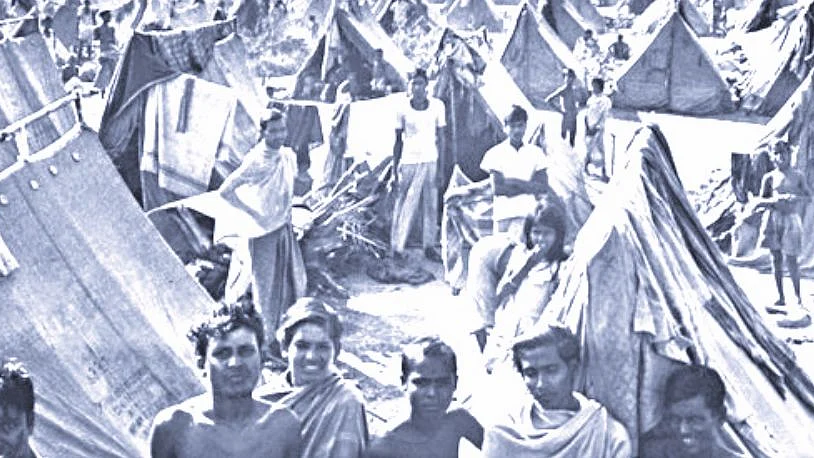Lessons from 1971: If India could host and feed 10 million refugees for 10 months then, what’s wrong now?
In 1971, India hosted 10 million refugees from Bangladesh. The refugees, both Hindus and Muslims, had fled the crackdown and genocide by the Pakistani army

In 1971, India hosted 10 million refugees from Bangladesh. The refugees, both Hindus and Muslims, had fled the crackdown and genocide by the Pakistani army, which had been let loose to teach Bengalis a lesson for electing the Awami League to power.
West Pakistan would not allow a Bengali, Muzibur Rahman, to become Prime Minister of united Pakistan. This led to the war with India in December, 1971, creation of Bangladesh and dismemberment of Pakistan. But from February that year to January, 1972, India had to bear the burden of refugees in camps set up in West Bengal, Assam, Tripura and Meghalaya. India was then a 24-year-old young republic. Its economy was weak. It had to depend on food aid from the US to feed its teeming millions.
Therefore, hosting 10 million additional souls was no small task. But the then Prime Minister Indira Gandhi vowed to send the refugees back to Bangladesh with honour and dignity. For almost a year ration was supplied to refugees in the camps: each adult was given 300 grams of rice, 100 grams of wheat flour, 100 grams of pulses, 25 grams of edible oil and 25 grams of sugar every day, and half of this quantity for children.
They were also given cash for daily expenses. A special postage stamp was issued, among other measures, to raise funds besides seeking donations, which poured in from both Indians and countries and agencies abroad. Some 6.8 million refugees returned within two months of the end of the war while the last batch of 3,869 refugees left on March 25, 1972.
The question is, if India could bear the burden of 10 million refugees for a year then, why has the Indian Government failed to take care of the migrant workers almost 50 years later, when its economy is a lot stronger; when communication is faster, when roads are better and when there are back to Bangladesh with honour and dignity. For almost a year ration was supplied to refugees in the camps: each adult was given 300 grams of rice, 100 grams of wheat flour, 100 grams of pulses, 25 grams of edible oil and 25 grams of sugar every day, and half of this quantity for children.
They were also given cash for daily expenses. A special postage stamp was issued, among other measures, to raise funds besides seeking donations, which poured in from both Indians and countries and agencies abroad. Some 6.8 million refugees returned within two months of the end of the war while the last batch of 3,869 refugees left on March 25, 1972.
The question is, if India could bear the burden of 10 million refugees for a year then, why has the Indian Government failed to take care of the migrant workers almost 50 years later, when its economy is a lot stronger; when communication is faster, when roads are better and when there are
Follow us on: Facebook, Twitter, Google News, Instagram
Join our official telegram channel (@nationalherald) and stay updated with the latest headlines